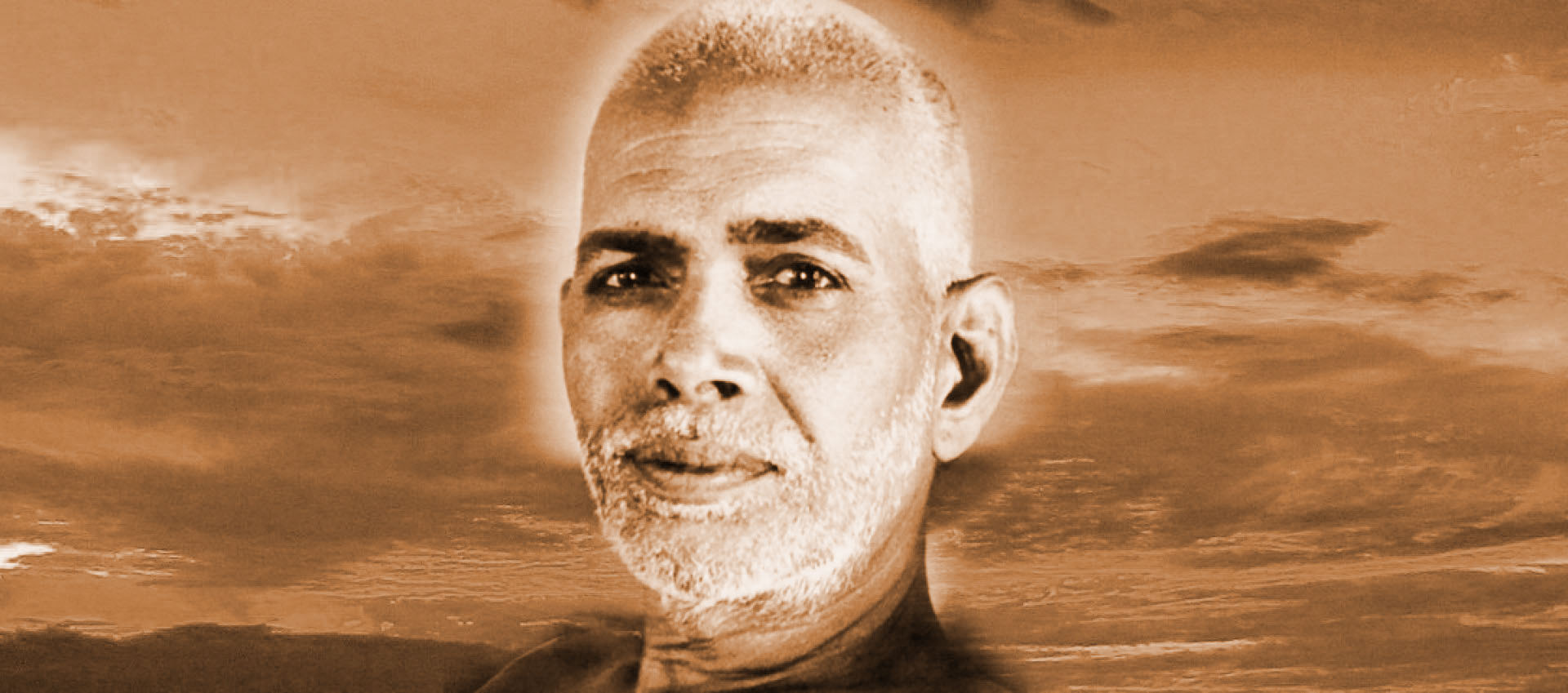
Recognize the Force of Divine Will and Keep Quiet
Talk 594.
The Spanish lady, Madam Mercedes De Acorta, has written a letter to Mr. Hague, the American mining engineer who is here as a temporary resident for the last two months. She has raised a few questions there: “If the individual Self merges into the universal Self, how can one pray to God for the uplift of humanity?” The question seems to be common among the thinkers of the West.
Sri Bhagavan said: They pray to God and finish with “Thy Will be done!” If His Will be done why do they pray at all? It is true that the Divine Will prevails at all times and under all circumstances. The individuals cannot act of their own accord. Recognize the force of the Divine Will and keep quiet. Each one is looked after by God. He has created all. You are one among 2,000 millions. When He looks after so many will He omit you? Even common sense dictates that one should abide by His Will.
Again there is no need to let Him know your needs. He knows them Himself and will look after them.
Still more, why do you pray? Because you are helpless yourself and you want the Higher Power to help you. Well, does not your Creator and Protector know your weakness? Should you parade your weakness in order to make Him know it?
D.: But God helps those who help themselves.
M.: Certainly. Help yourself and that is itself according to God’s Will. Every action is prompted by Him only. As for prayer for the sake of others, it looks so unselfish on the surface of it. But analyse the feeling and you will detect selfishness there also. You desire others’ happiness so that you may be happy. Or you want the credit for having interceded on others’ behalf. God does not require an intermediary. Mind your business and all will be well.
D.: Does not God work His Will through some chosen person?
M.: God is in all and works through all. But His presence is better recognized in purified minds. The pure ones reflect God’s actions more clearly than the impure minds. Therefore people say that they are the chosen ones. But the ‘chosen’ man does not himself say so. If he thinks that he is the intermediary then it is clear that he retains his individuality and that there is no complete surrender.
D.: Are not the Brahmins considered to be the priests or intermediaries between God and others?
M.: Yes. But who is a Brahmin? A Brahmin is one who has realized Brahman. Such a one has no sense of individuality in him. He cannot think that he acts as an intermediary.
Again, as for prayer, a realised man does not see others as different from oneself. How can he pray at all, and to whom and for what? His very presence is the consummation of happiness for all. So long as you think that there are others different from you, you pray for them. But the sense of separateness is ignorance. This ignorance is again the cause of feeling helplessness. You know that you are weak and helpless. How then can you help others? If you say, “By prayer to God”, God knows His business and does not require your intercession for others.
Help yourself so that you may become strong. That is done by complete surrender. That means you offer yourself to Him. So you cannot retain your individuality after surrender. You then abide by His Will. Thus Silence is the Highest of all achievements.
Silence is the ocean in which all the rivers of all the religions discharge themselves. So says Saint Thayumanavar. He also adds that the Vedic religion is the only one which combines both philosophy and religion.
Talk 596.
A visitor asked: Sri Bhagavan said last night that God is guiding us. Then why should we make an effort to do anything?
M.: Who asks you to do so? If there was that faith in the guidance of God this question would not have arisen.
D.: The fact is that God guides us. Then what is the use of these instructions to people?
M.: They are for those who seek instructions. If you are firm in your belief in the guidance of God, stick to it, and do not concern yourself with what happens around you.
Furthermore, there may be happiness or misery. Be equally indifferent to both and abide in the faith of God. That will be so only when one’s faith is strong that God looks after all of us.
Mr. Chopra asked: “How shall I secure that firm faith?”
M.: Exactly. It is for such as these who want instructions. There are persons who seek freedom from misery. They are told that God guides all and so there need not be any concern about what happens. If they are of the best type they at once believe it and firmly abide by faith in God.
But there are others who are not so easily convinced of the truth of the bare statement. They ask: “Who is God? What is His nature? Where is He? How can He be realized?” and so on.
In order to satisfy them intellectual discussion is found necessary. Statements are made, their pros and cons are argued, and the truth is thus made clear to the intellect.
When the matter is understood intellectually the earnest seeker begins to apply it practically. He argues at every moment, “For whom are these thoughts? Who am I?” and so forth, until he is well-established in the conviction that a Higher Power guides us. That is firmness of faith. Then all his doubts are cleared and he needs no further instructions.
D.: We also have faith in God.
M.: If it had been firm no questions would have arisen. The person will remain perfectly happy in his Faith in the Omnipotent.
D.: Is the enquiry into the Self the same as the above mentioned faith?
M.: The enquiry into the Self is inclusive of all, faith, devotion, jnana, yoga and all.
Talk with Ramana Maharshi
15th December, 1938
Talks 594 and 596.

